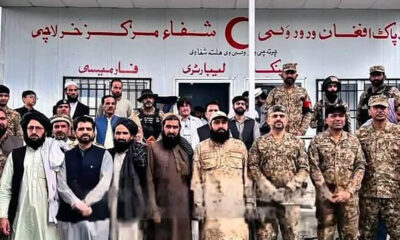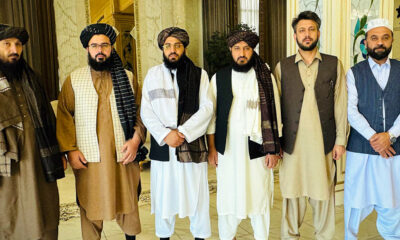Latest News
Ghani says Pakistan not in favor of an Islamic Emirate
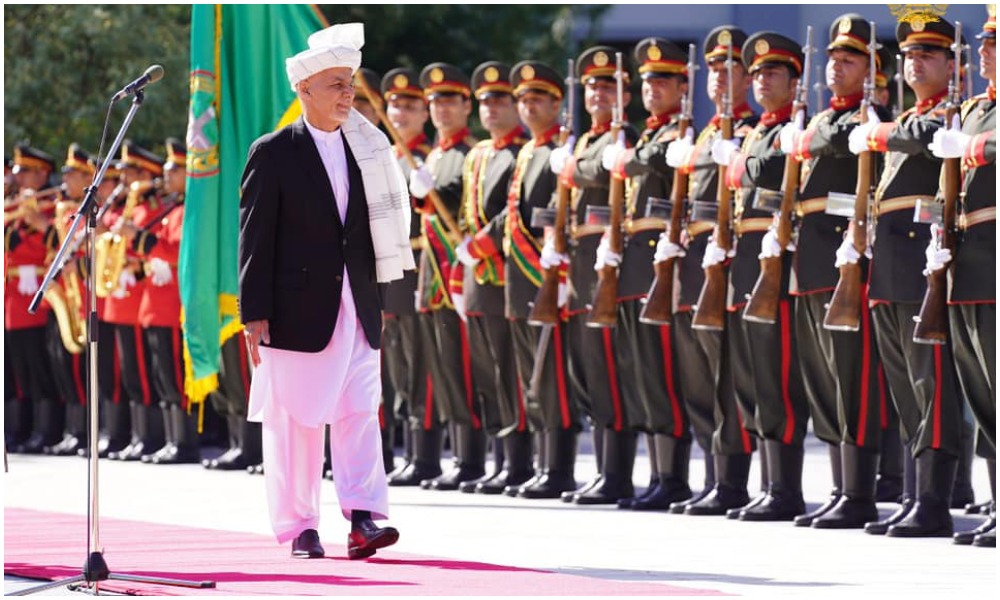
Afghan President Ashraf Ghani said on Thursday that Pakistan’s Army Chief of Staff General Qamar Javed Bajwa told him this week that the revival of an Islamic Emirate in Afghanistan was not in Pakistan’s interest.
“Pakistan’s Army Chief of Staff has made it clear that reviving the Islamic Emirate in Afghanistan is not in Pakistan’s national interest,” Ghani said.
After Eid prayers at the Presidential Palace on Thursday, Ghani addressed the nation and called on the Taliban to seize the current peace process opportunity and end the war.
He said the withdrawal of foreign troops was presenting the biggest chance for peace and he called on the Taliban not to miss this historic opportunity.
According to him, the war has cost the country $1 billion so far.
Calling on the Taliban, he said: “What is your message? Why are you destroying the districts? Show me a district that the Taliban is in full control of and has built something.”
Ghani also said in response to the Eid message from Taliban leader Hibatullah Akhundzada that: “Mr. Hibatullah, before sending a message [for people to surrender], look at the history of this nation [which never surrenders].”
Ghani also told the Taliban to make a choice as violence is not the solution.
“The Taliban must make a choice, because our choice is that the only solution to the country’s problem is political compromise and war cannot solve the problem,” Ghani said.
Ghani further added that: “The beauty of a republican system is that every president is outgoing. Our condition is elections; as soon as you want, my colleagues and I are ready not to stand in elections and to listen to the will of the nation.”
He also assured the nation that cooperation by the international community will be better and more regulated once troops have withdrawn.
“Be sure that international cooperation will be better and more efficiently regulated. Regional consensus is accelerating to consolidate Afghanistan’s key role in the Heart of Asia,” Ghani added.
On Afghanistan’s foreign policy, Ghani said, in future, all decisions on “our security and regional relations will be made based on the national interests.
“I have always said that we have neither permanent enemies nor permanent friends, because only our national interests are permanent,” Ghani said.
Ghani also said that after every darkness there will be a bright future.
“Our state of mind is a state of national grief. The blood of our martyrs, especially Sayed Al-Shuhada School, Logar, Kunar, Zabul, Arghandab and all the families of the victims of Afghanistan are in our thoughts, but God’s will is that light shines after every darkness,” he said.
Latest News
Iran plans to invest $5 billion in Afghanistan’s iron mines
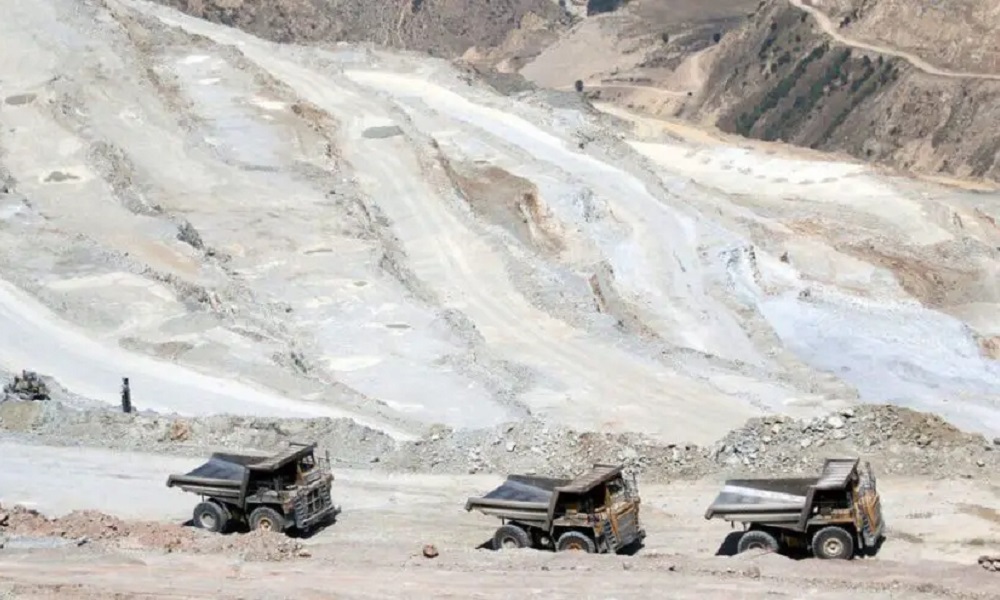
Iranian media have reported that the country is investing $5 billion in Afghanistan’s iron mines.
Alireza Bikdeli, acting ambassador of Iran in Kabul, stated that Afghanistan’s rich mineral resources present an opportunity for cooperation between the two neighboring countries.
He added that this investment would enhance Iran’s position in global steel production.
Fars News Agency reported that, given Iran’s increasing need for raw materials in its mining industries, the investment is expected to yield up to sixfold returns.
Iran imports each ton of Afghan iron mine at a price of $100 and exports it as steel at a final price of $600.
According to the latest data from Afghanistan’s Ministry of Mines, Iran has invested $2.3 billion in the country’s mining sector, including iron, over the past several years.
Abdul Nasir Reshtia, the executive director of the Union of Iron Smelting Factories, said: “If the country’s mines are extracted in a technical and professional manner, and all processing and production stages are carried out domestically, we will witness significant economic effectiveness.”
Reports indicate that the Iran-Afghanistan cooperation agreement on iron ore mining is a five-year contract, expected to generate $1.2 billion in annual profit for Iran.
Over the past three years, Iran-Afghanistan relations have expanded, with bilateral trade reaching $4 billion annually.
Meanwhile, Iranian officials have granted their border provinces the authority to fully utilize all resources to enhance relations with Afghanistan’s border provinces, particularly in the economic and trade sectors.
Latest News
IEA’s high-level delegation arrives in Kazan

A high-ranking delegation of the Islamic Emirate, led by Mullah Abdul Ghani Baradar, Deputy Prime Minister for Economic Affairs, arrived on Wednesday in the city of Kazan, the capital of the Republic of Tatarstan, to participate in the 16th Kazan International Economic Forum.
In a statement issued by the deputy PM’s office, the delegation of the Islamic Emirate was given a “warm welcome” at Kazan International Airport by the Deputy Leader of the Republic of Tatarstan.
Latest News
Islamic Emirate welcomes Trump’s move to cancel protection program for Afghan refugees
The Trump administration said Monday it was ending the TPS program that offered deportation protection to thousands of people from Afghanistan.
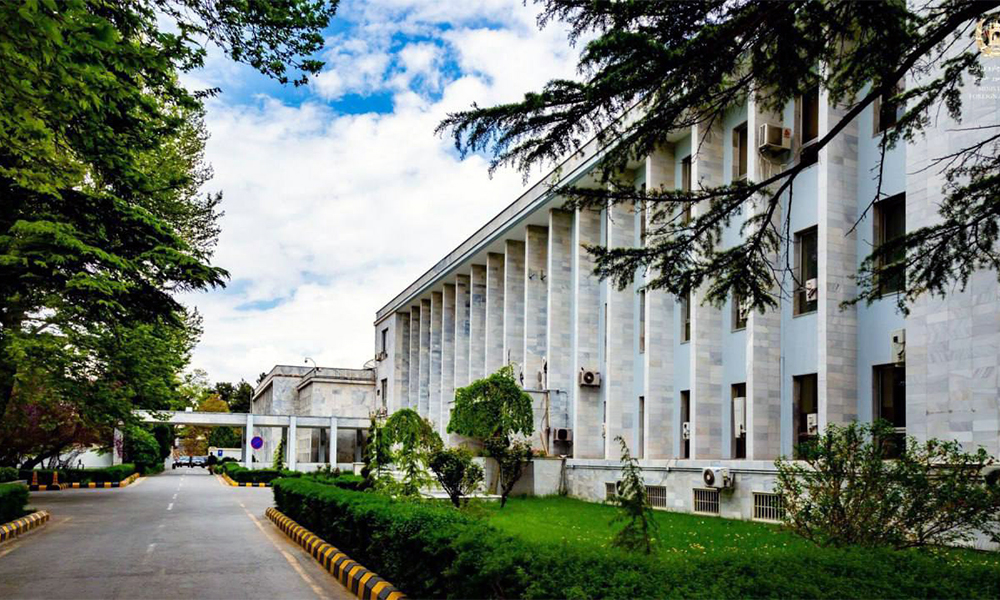
Afghanistan’s Foreign Ministry says the recent announcement by the US Department of Homeland Security on the suspension of the Temporary Protective Program Status (TPS) program for Afghans was a “positive step” and acknowledgement of an improved situation in Afghanistan.
The Trump administration said Monday it was ending the TPS program that offered deportation protection to thousands of people from Afghanistan.
The Islamic Emirate of Afghanistan (IEA) said Wednesday this move “affirms progress in Afghanistan’s security and economic environment”.
The IEA views this as “a clear recognition of progress made in national security, economy and other areas”.
According to a statement, “Afghanistan is the shared home of all Afghans, and all have the right to free movement.”
The IEA also stated that it is ready to engage in constructive dialogue with the US and other countries regarding the repatriation of Afghans who no longer meet criteria to remain in host countries.
“IEA underscores the importance of bilateral mechanisms and consular services for its citizens, in line with established standards, to prevent complications, address national security concerns, and ensure the dignity and rights of returnees,” the statement read.
The US Department of Homeland Security said Monday it will end the program on July 12.
The TPS program allows migrants to get work permits and temporary reprieve from deportation if the US government determines it is unsafe for them to return to their home countries due to war, natural disaster or other issues.
Over 8,000 Afghans were approved for TPS as of last year, according to federal statistics.
TPS was last extended for Afghanistan in 2023, and it was set to expire in May unless the Trump administration chose to grant another extension.
“This decision is unconscionable and will have long-lasting ripple effects,” AfghanEvac, a group that helps relocate Afghans, said in a post on X early this week.
-

 Latest News4 days ago
Latest News4 days agoPakistan says India launched attack on Afghanistan, India denies
-

 World4 days ago
World4 days agoUS offers to help India and Pakistan start talks, G7 also urges dialogue
-
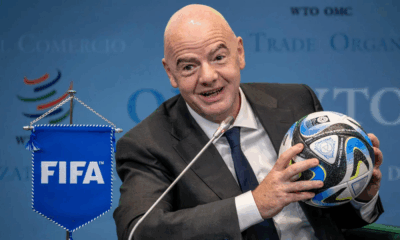
 Sport5 days ago
Sport5 days agoFIFA OKs creation of Afghanistan women’s refugee team
-

 Regional5 days ago
Regional5 days agoPakistan says it has launched military offensive against India
-

 World4 days ago
World4 days agoTrump says India, Pakistan agree to ‘full and immediate ceasefire’
-
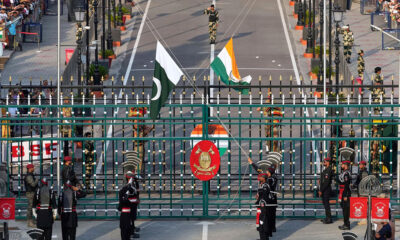
 Regional4 days ago
Regional4 days agoExplosions reported after India and Pakistan agree to ceasefire
-

 Regional3 days ago
Regional3 days agoIndian air force says losses are part of combat but all pilots back home
-

 Tahawol4 days ago
Tahawol4 days agoTahawol: Status of Afghanistan’s infrastructure projects reviewed








